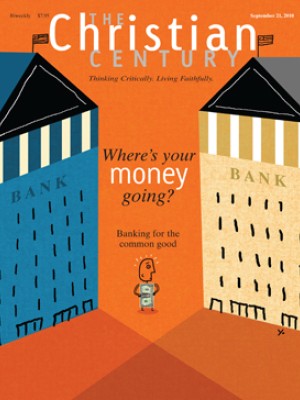Mainstream Muslims
A recent cover of Time
magazine asked: “Is America Islamophobic?” A Time survey discovered equivocal
evidence on the question. Nearly half of Americans (46 percent) think Islam is
more likely than other religions to encourage violence against nonbelievers,
and 61 percent oppose the building of an Islamic community center near Ground
Zero in lower Manhattan. But 55 percent believe that U.S. Muslims are patriotic
Americans, and the same percentage would approve of a mosque being built in
their own neighborhood.
Assimilating ethnic and religious groups has never been
smooth in the U.S. Color, religion and nationality have always made a
difference in how well immigrants are treated. The Immigration Act of 1924
restricted the number of southern and eastern Europeans coming into the
country, and it barred immigrants from East Asia and India. This rule was not
lifted until 1965.
Read our latest issue or browse back issues.
Suspicion of those who are different has a long history.
Speaking to the largely Irish-Catholic Knights of Columbus in 1915, Teddy Roosevelt
said that “there is no such thing as a hyphenated American who is a good
American. The only man who is a good American is the man who is an American and
nothing else.” President Woodrow Wilson echoed this sentiment, saying that “any
man who carries a hyphen about with him carries a dagger that he is ready to
plunge into the vitals of this republic whenever he gets ready.”
Yet over the years people of different religions and
nationalities have found their way into the American mainstream—precisely because
they have been allowed to practice their religious and ethnic customs and enjoy
the benefits of freedom. Fifty years ago a scholar studied a thriving mosque,
in Toledo, Ohio. At the time many people assumed that the more Muslims
participated in the life of a mosque, the less they would identify with
mainstream American values and behaviors. But the opposite turned out to be
true: participation in the mosque actually led to greater identification with
the United States and greater involvement in the community, especially in
business.
A 2007 Pew Research poll of U.S. Muslims concluded that they
were “middle class and mostly mainstream.” Eighty-eight percent were likely
voters, 75 percent contributed to local charities, and over half had household
incomes greater than $50,000.
Newcomers come to admire and engage in national life when
their own values and practices are met with respect and tolerance. It’s for
that reason that Muslims have become much more a part of the mainstream in the
U.S. than they have in France, for example, which places restrictions on
women’s wearing of the hijab and burqa.
E pluribus unum—out of many, one—is our nation’s motto. The republic is
stronger when the pluribus is respected as well as the unum.






